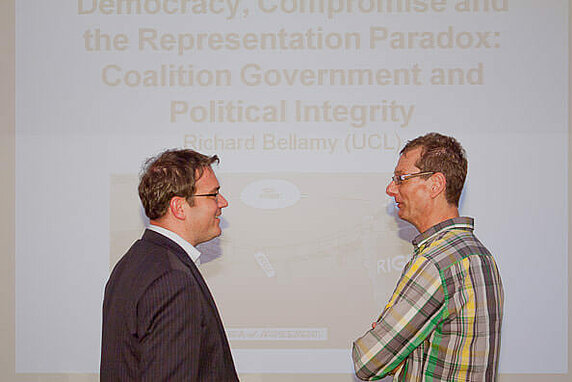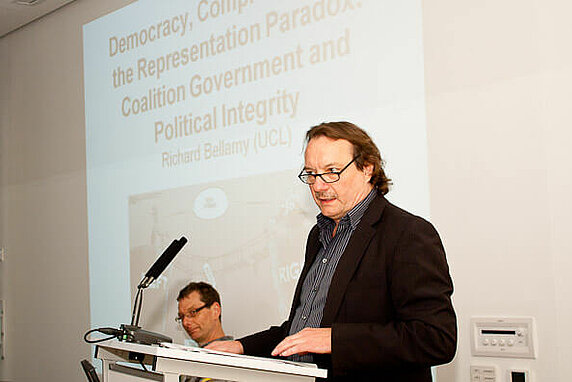
Coalitions are often condemned as undemocratic and unprincipled because of the compromises they involve. Politicians are accused of betraying the commitments they made during elections. Paradoxically, proponents of this view suggest that if compromises are to be made they should be pragmatic and based on policy rather than principle. Richard Bellamy disputed this thesis and defended compromise as both principled and democratic. He distinguished a shallow compromise based on the maximal satisfaction of exogenously defined preferences from a deep compromise resulting from reasoning on principle, and argued that it is impossible to avoid the latter. Bellamy further suggested that the obligation to compromise forms part of the ethos of democracy, given that citizens must agree despite their disagreements. While representatives almost always betray their electoral mandate if obliged to make only shallow compromises, he argued, they can legitimately engage in deep compromises for their voters when they reason appropriately.
Welcome: Helmut K. Anheier, Dean and President, Hertie School
Lecture: Richard Bellamy, Professor of Political Science and Director, European Institute, University College London.
Commentary: Christopher Gohl, Head, German Free Democrat Party’s political planning unit.






